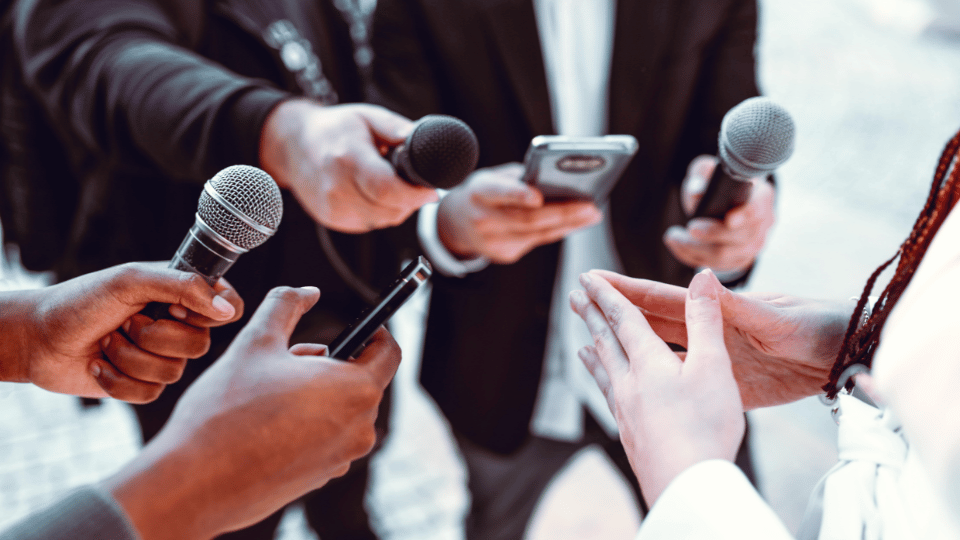Interviewing is a fundamental skill for journalists, enabling them to gather information, tell compelling stories, and uncover the truth. Whether you’re a seasoned journalist looking to refine your interviewing technique or a novice eager to learn the ropes, mastering the art of interviewing like a journalist is essential for success in the field.
Prepare Thoroughly
Before conducting an interview, it’s crucial to do your homework. Research the interviewee, their background, and the topic of discussion. Understanding the context will not only help you ask relevant questions but also demonstrate your knowledge and credibility during the interview.
Craft Thoughtful Questions
Effective interviews are driven by insightful questions. Avoid yes or no inquiries and instead ask open-ended questions that encourage detailed responses. Consider the angle of your story and tailor your questions to elicit the information needed to tell a compelling narrative.
Active Listening
Listening attentively is a hallmark of successful journalists. Pay close attention to the interviewee’s responses, ask follow-up questions to delve deeper into their answers, and show genuine interest in their perspective. Active listening helps build rapport and allows you to uncover valuable insights.
Maintain Professionalism
Conducting interviews requires professionalism and respect. Arrive on time, dress appropriately, and establish a professional demeanor throughout the interaction. Building a positive rapport with your interviewee fosters a conducive environment for open communication.
Adaptability
Flexibility is key in interviews, as conversations can take unexpected turns. Be prepared to pivot your line of questioning based on the interviewee’s responses or new information that arises. Adaptability ensures that you capture relevant details and respond effectively to the unfolding dialogue.
Ethical Considerations
Upholding ethical standards is paramount in journalism. Respect the interviewee’s privacy, seek consent for recording or quoting their statements, and ensure accuracy in your reporting. Transparency and integrity form the foundation of ethical journalism practices.
Use Probing Techniques
To uncover deeper insights and perspectives, employ probing techniques during interviews. Follow up on vague responses, ask for examples or specific details, and encourage the interviewee to elaborate on their thoughts. Probing questions can lead to richer and more informative discussions.
Body Language
Nonverbal cues play a significant role in communication. Maintain eye contact, nod in acknowledgment, and exhibit attentive body language to convey interest and engagement. Your demeanor can influence the interviewee’s comfort level and the overall success of the interview.
Practice and Feedback
Like any skill, interviewing improves with practice. Conduct mock interviews with colleagues or mentors to hone your technique, receive constructive feedback, and identify areas for improvement. Continuous practice enhances your confidence and proficiency in conducting interviews.
Reflect and Learn
After each interview, take time to reflect on the experience. Assess what went well, areas for enhancement, and lessons learned. Reflecting on your interviewing approach allows you to refine your skills, adapt strategies, and grow as a journalist.
Conclusion
Mastering the art of interviewing like a journalist requires dedication, practice, and a commitment to continuous improvement. By incorporating these strategies into your interviewing repertoire, you can conduct insightful, engaging interviews that captivate audiences, uncover compelling stories, and uphold the principles of ethical journalism.
Key Takeaways:
- Thorough preparation builds credibility and ensures relevant questions.
- Open-ended, thoughtful questions lead to deeper, more informative responses.
- Active listening helps uncover insights and builds rapport.
- Professionalism and respect create a positive interview environment.
- Adaptability allows for effective responses to unexpected answers or topics.
- Ethical practices like gaining consent and ensuring accuracy are essential.
- Probing techniques help clarify vague answers and gather specific details.
- Positive body language encourages openness and engagement.
- Practice and feedback are crucial for improving interviewing skills.
- Reflection after interviews supports continuous growth and refinement.
As you strive to enhance your interviewing prowess and excel in your journalism career, consider further refining your skills with the NYU | Modern Journalism online course and certificate program offered by Yellowbrick. This comprehensive program can provide you with valuable insights, practical knowledge, and hands-on experience to elevate your interviewing techniques and excel in the dynamic realm of journalism.








